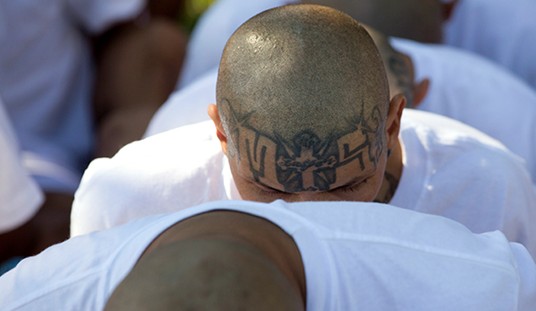I’m studying for my Seminary exam, which is two weeks away. One of the things I keep coming back to is how, once you dig in, so much of the rich tapestry of the Bible is connected. Consider, if you will, sin.
“In the beginning, God created the heaves and the earth.” We know that part, but go down a bit to verse six and following.
6 And God said, “Let there be an expanse in the midst of the waters, and let it separate the waters from the waters.” 7 And God made the expanse and separated the waters that were under the expanse from the waters that were above the expanse. And it was so. 8 And God called the expanse Heaven. And there was evening and there was morning, the second day. 9 And God said, “Let the waters under the heavens be gathered together into one place, and let the dry land appear.” And it was so. 10 God called the dry land Earth, and the waters that were gathered together he called Seas. And God saw that it was good.
The Holy Bible: English Standard Version. (2001). (Ge 1:6–10). Wheaton: Standard Bible Society.
Got that? Water was separated from water. Land divided it up. The waters under the heavens were gathered in one place. Some water went underground. Some formed into seas. Some stayed above the earth and came back as rain. The processes of evaporation and condensation and precipitation come into being.
Here’s where it gets interesting. In Genesis 6, God declares he must wipe out his creation, save for Noah. In Genesis 7, God tells Noah, “For behold, I will bring a flood of waters upon the earth to destroy all flesh in which is the breath of life under heaven. Everything that is on the earth shall die.”(Ge 6:17)
They pay attention to this.
11 In the six hundredth year of Noah’s life, in the second month, on the seventeenth day of the month, on that day all the fountains of the great deep burst forth, and the windows of the heavens were opened. 12 And rain fell upon the earth forty days and forty nights.
The Holy Bible: English Standard Version. (2001). (Ge 7:11–12). Wheaton: Standard Bible Society.
See what happened there? In Genesis 1, the waters of the earth separate, evaporating into the air, pooling into the seas, and sinking under the land. Here, all of creation comes undone. Everything that had become ordered, separated, and distinct comes back together in a chaotic mass.
It is one of the few scenes from the nutty movie Noah that I think captured it. The water bursts forth from the ground shooting up skyward.
21 And all flesh died that moved on the earth, birds, livestock, beasts, all swarming creatures that swarm on the earth, and all mankind. 22 Everything on the dry land in whose nostrils was the breath of life died. 23 He blotted out every living thing that was on the face of the ground, man and animals and creeping things and birds of the heavens. They were blotted out from the earth. Only Noah was left, and those who were with him in the ark. 24 And the waters prevailed on the earth 150 days.
The Holy Bible: English Standard Version. (2001). (Ge 7:21–24). Wheaton: Standard Bible Society.
This is the key point here to pay attention to. The world came undone, order turned back to chaos, and creation unwound back to as it had been in the beginning because of man’s sin.
Man’s sin required all of creation, not just men, be eradicated save for those in the ark. The effects of humanity’s sin on the planet is pretty profound — profound enough that the Creator decided He needed to back us up to, in effect, the second day and start over.
It is also important to recognize that Noah was not without sin. He “found favor in the eyes of the Lord” (Gen. 6:8) and was “blameless in his generation” (Gen. 6:9). But that does not mean he was without sin. He was not a pre-Jesus. He was a man, but he was a man whose heart was fixed on God and who “walked with God” when the rest of the world had turned away from God.
Noah’s wife and children too were not blameless. In fact, they take up residence in the ark not because they were found blameless, but because Noah himself was found blameless. God tells Noah, ““Go into the ark, you and all your household, for I have seen that you are righteous before me in this generation.” (Ge 7:1) He does not say Noah’s household was righteous before him, just Noah, but they get the protection of the ark because of Noah.
Here we see the importance of family. God shows blessings on the families of the righteous. The wife and children and the wives of the children get the protection of the Ark because God loves families and gives blessings through the family. It is another example of the importance of family and the importance of keeping family together.
But, here we come to the end. The family goes out of the Ark and sin creeps into the world again. Neither the church nor the family nor even those found righteous are without sin. The very sins that polluted the earth to the extent it had to be destroyed have come back. But God promised not to destroy the world again in fire. Instead, when he set the rainbow in the sky, the arch of the bow pointed upward — an allusion pointing toward He who would see God’s wrath and provide salvation.
It is a wonderful and fascinating story in the Bible, with so much more depth than I first realized. I thought it worth sharing. It should also tell conservatives who bristle over environmental nonsense that while we may dominate the earth and while we need not have to worry about nonsense like global warming (see e.g. “While the earth remains, seedtime and harvest, cold and heat, summer and winter, day and night, shall not cease.”(Ge 8:22)), we still must be good stewards of the resources God has given us.
The story also concludes with admonitions on how precious life is. Noah is commanded, like Adam, “to be fruitful and multiply and fill the earth.” He is also told that “whoever sheds the blood of man, by man shall his blood be shed, for God made man in his own image.” (Gen 9:6). That message is, counter-intuitively. very pro-life. God is telling Noah that because mankind is created in God’s own image, any who kill without cause must have their own life taken. Why? Because they have not respected their Creator enough and have taken the life of one God himself created in his image. To be clear here, this is a different concern from the administration of the death penalty, but the language does advocate for the death of those who wantonly take the life of another.
I do not think it a coincidence that as secular society has gotten further and further from God and, concurrently, moved further and further from capital punishment, society has also itself seemed to value life less and less. The “imago dei,” or the idea that we are specially created in the image of God has lost its value and meaning. In Genesis 1, at the end of each day, God sees and determines he creation “good.” But on the day God creates mankind, he sees that it is “very good.” There is a separation, a distinction in word choice, and that “very good” is because we are created in his image.
I could ramble on further about this, but just wanted to share. One final point — Man’s sin required Good to cleanse the world by eradicating every living thing save for those preserved on the Ark. That sin crept back into the world when the doors of the Ark were opened. The sin that polluted and corrupted the world in antediluvian times is here now corrupting the very ground on which we walk. Noah and his family found refuge from it all while in the Ark. We would be very wise to not shirk our obligation to the Sabbath and our church community and the Bible and prayer. God is our refuge and we find our way out of the world through a relationship with him. The family and the church family play vital roles in this. Do not underestimate the act of getting up on a Sunday morning and going to worship the Risen Lord.
Now back to studying.














Join the conversation as a VIP Member